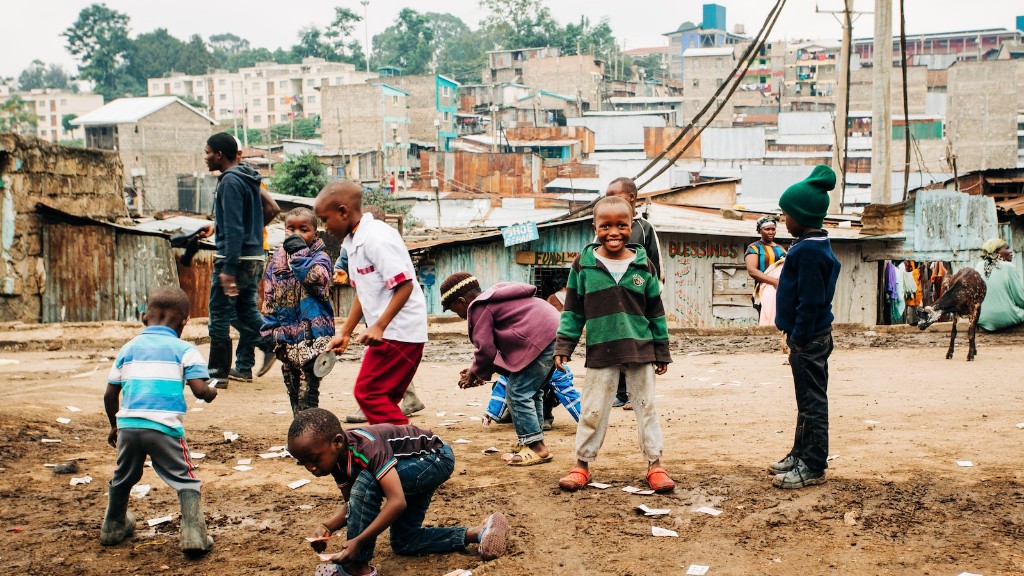The Atlantic slave trade was a devastating chapter in human history, particularly for the West African tribes that were uprooted from their homeland and forcibly taken as slaves across the Atlantic Ocean. This trade, which lasted from the 16th to the 19th century, had enduring impacts on the social, economic, and cultural fabric of the region. It is important to delve into the background of these West African tribes to fully understand the magnitude of the Atlantic slave trade and its lasting consequences.
Before the arrival of European colonial powers, West Africa was home to a rich tapestry of diverse and thriving tribes. These tribes, such as the Yoruba, Igbo, Ashanti, and many others, had well-established societies with unique political structures, religious beliefs, and cultural practices. They thrived through agriculture, trade, and craftsmanship, creating vibrant communities in a mutually beneficial network.
The Transatlantic slave trade disrupted this delicate balance. European powers, driven by their insatiable thirst for labor and economic prosperity, saw an opportunity in West Africa. They began to establish forts and trading posts along the coast, exploiting existing conflicts and tribal rivalries to gain access to slaves. European ship captains would negotiate with tribal leaders or raid villages to acquire human cargo.
According to historical data, it is estimated that between 9.5 and 12.5 million Africans were forcibly transported as slaves across the Atlantic Ocean between the 16th and 19th centuries. The West African tribes were disproportionately affected by this trade, with millions being torn away from their families, homeland, and cultural heritage. This figure represents the unimaginable loss and pain experienced by these tribes.
Furthermore, the impact of the slave trade on the social dynamics of West Africa cannot be understated. With countless able-bodied individuals being taken away, communities were left in turmoil. Families were shattered, leading to a loss of identity and communal ties. This disruption created a power vacuum within these tribes, allowing European colonial powers to exert greater control over the region.
Experts on the subject argue that the Atlantic slave trade also had a profound effect on the economic development of West Africa. The extraction of millions of individuals disrupted agricultural practices, led to the decline of trade networks, and resulted in the loss of skilled labor. This loss of productivity further perpetuated the economic imbalance between Europe and Africa, as the region was drained of its resources without receiving adequate compensation.
From a cultural perspective, the Atlantic slave trade had a lasting impact on the West African tribes. Many Africans were forced to abandon their native languages, religions, and cultural practices in order to assimilate into the new societies they were introduced to. This cultural erasure, coupled with the physical and emotional trauma experienced by these individuals, created a lasting legacy of pain and loss.
Modern-day reflections
The echoes of the Atlantic slave trade are still felt in West Africa to this day. The deep scars left by this chapter in history continue to shape the social, economic, and cultural landscape of the region.
Today, efforts are being made to preserve and revive the cultural heritage of the West African tribes affected by the slave trade. Organizations and initiatives focused on cultural preservation and education aim to reconnect descendants with their ancestral roots and promote a sense of identity and pride. These efforts are crucial in fostering healing and resilience within the communities.
Additionally, the economic imbalances resulting from the slave trade still persist. The focus on resource extraction and the legacy of colonialism continue to hinder the development and self-sufficiency of many West African nations. Addressing these systemic issues requires both internal reforms and international cooperation to rectify the historical injustices.
Lessons for humanity
The Atlantic slave trade stands as a grim reminder of the depths of human cruelty and the devastating consequences of greed and exploitation. It serves as a stark example of the dangers of dehumanizing others and treating human beings as commodities.
This history should not be forgotten, but rather integrated into our collective understanding of the human experience. By acknowledging the atrocities of the past, we can strive for a more just and equitable future. Empathy, understanding, and an unwavering commitment to human rights should guide our actions to ensure that such atrocities are not repeated.
Confronting the legacy
The legacy of the Atlantic slave trade presents a daunting challenge for societies today. It requires not only confronting uncomfortable truths but also actively dismantling the systemic structures that perpetuate inequality and marginalization.
Education plays a key role in this process. By incorporating the history of the Atlantic slave trade into curricula, we can foster empathy and understanding among future generations. It is important to teach this history in a way that humanizes the victims and emphasizes the resilience and contributions of the affected communities.
Additionally, reparative justice should be at the forefront of discussions surrounding the legacy of the slave trade. Acknowledging the historical injustices and working towards creating economic and social opportunities for the descendants of those who were enslaved is essential to addressing the ongoing impacts of this brutal trade.
Preserving heritage and promoting unity
In conclusion, the Atlantic slave trade had a profound and lasting impact on the West African tribes that were uprooted from their homeland. This chapter in history cannot be understood without examining the vibrant societies that existed prior to European colonization.
To truly comprehend the magnitude of the Atlantic slave trade, we must listen to the voices of those affected, learn from the wisdom of experts, and actively work towards healing and unity. Only by confronting this painful history can we ensure a more just and equitable future for all.




